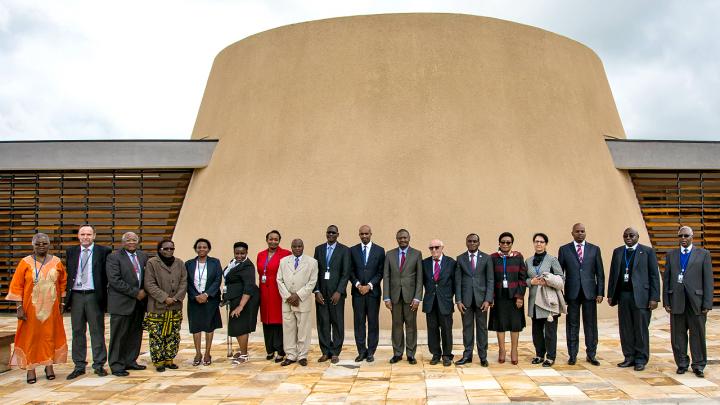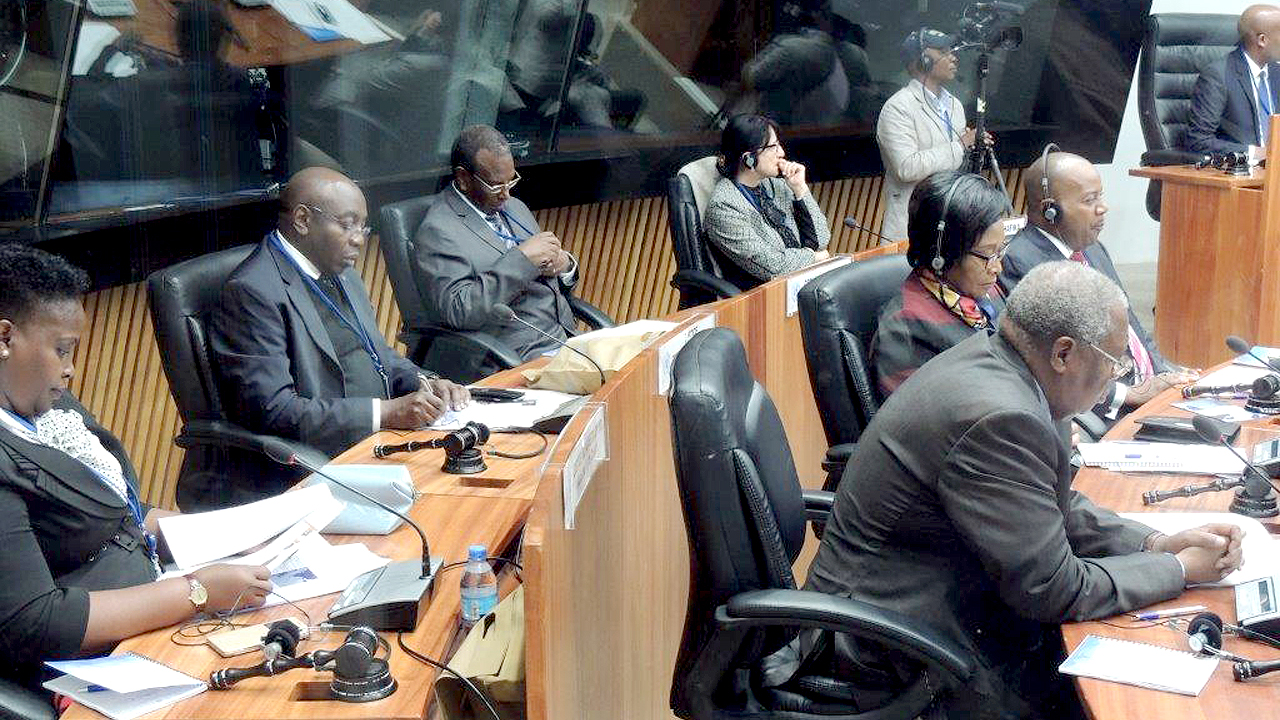Mechanism Hosts Inaugural High-Level Colloquium for National, Regional and International Judges

The Mechanism for International Criminal Tribunals (MICT or Mechanism) hosted an inaugural two-day high-level Colloquium for National, Regional and International Judges at its premises at Lakilaki, Arusha, on Friday, 5 May and Saturday, 6 May 2017.
The Judicial Colloquium, the first of its kind, brought together senior judges from each of the major judicial institutions represented in Arusha. The Acting Chief Justice of the United Republic of Tanzania, the Honourable Professor Ibrahim Juma, headed the delegation of Tanzanian Judges of the Arusha Bench of the High Court. The sub-regional East African Court of Justice was represented by its President, the Honourable Justice Emmanuel Ugirashebuja, and the Justices of its Appellate Division, while the regional African Court on Human and Peoples’ Rights was represented by its President, the Honourable Justice Sylvain Oré, and Justices of the Court.
The Colloquium, hosted by the MICT President, Judge Theodor Meron, enabled Judges of all four Arusha-based institutions to share respective knowledge and experience in the area of international criminal law and to deepen a shared understanding of insights into four foundational components of modern international criminal practice. These encompassed the law of the crime of genocide, the law of crimes against humanity, the law of war crimes, and the law of modes of liability for international crimes. The Colloquium also offered valuable opportunity to assess complementary roles of all four judicial institutions, within their respective mandates, in addressing different aspects of international crimes and contributing collectively to accountability and an end to impunity.
Opening the Colloquium, the Acting Chief Justice, Professor Juma, stressed that: “Tanzania subscribes to the principle that investigation, trial and punishment of international crimes is essential to the maintenance of international peace and security”. The African Court President, Justice Oré, for his part observed that justice for the most serious crimes that is characterised by both swiftness and quality “can only be fully realised through a constant interaction between our respective institutions”. The East African Court President, Justice Ugirashebuja, likewise acknowledged the significance of the Colloquium and the value of deepening judicial dialogue between the courts and tribunals taking part.
Throughout the two-day Colloquium, the participants shared their understanding of these key aspects of international criminal law, through a methodological lens of joint reflection on complementary approaches to judicial decision-making at national, regional and international levels.
In his closing remarks to the Colloquium, MICT President Meron emphasised that he was “more convinced than ever of the roles that national and regional courts can – and indeed must - play as the first line of accountability for the worst crimes known to humanity. International courts can only be backstop solutions, in respect of a narrow class of offenders, while the demand for an end to impunity ranges far more widely.” Wrapping up the event, President Meron stressed that he and his fellow MICT Judges “are very pleased to be part of the long-standing family of judicial institutions here in Arusha and are proud to contribute through our work and these premises to a shared recognition of our host city as an abiding forum for law and justice, sounding across the region and around the world.”
The Colloquium offered a first opportunity to introduce the Mechanism to its sister judicial institutions in Arusha and is intended as an annual event for high-level judicial exchanges at Lakilaki, Arusha.
